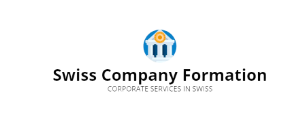How to Open a Switzerland Bank Account: A Comprehensive Guide

Switzerland is renowned for its robust banking system, privacy laws, and financial stability, making it a top choice for individuals and businesses seeking to open a bank account. Whether you're looking for personal banking services, wealth management, or a corporate account, Switzerland offers a wide range of options. This article will guide you through the process of opening a Switzerland bank account, highlighting the key requirements, benefits, and steps involved.
Why Choose a Swiss Bank Account?
Swiss banks are synonymous with security, discretion, and efficiency. They offer a variety of financial services, including savings accounts, investment portfolios, and high-level wealth management. The strong regulatory framework and political neutrality of Switzerland ensure that your assets are well-protected. Additionally, Swiss banks are at the forefront of digital banking, offering online and mobile banking services that cater to a global clientele.
Types of Swiss Bank Accounts
1. Personal Accounts: Ideal for individuals looking for savings or checking accounts, personal accounts in Swiss banks provide a secure place to store your money, with the option to diversify into various currencies.
2. Corporate Accounts: For businesses, Swiss banks offer corporate accounts that facilitate international trade, investment, and financial management.
3. Investment Accounts: These accounts are tailored for clients interested in wealth management and investment opportunities, providing access to global markets and expert financial advice.
Requirements for Opening a Swiss Bank Account
Opening a Switzerland bank account is a straightforward process, but it requires certain documentation:
- Identification: A valid passport or national ID.
- Proof of Address: A recent utility bill or official document showing your current address.
- Source of Funds: Documentation that proves the origin of the funds you intend to deposit.
- Financial Background: For high-value accounts, Swiss banks may require additional information about your financial background and the purpose of the account.
Steps to Open a Swiss Bank Account
1. Choose a Bank: Switzerland is home to several reputable banks, including UBS, Credit Suisse, and Julius Baer. Research the options available and choose a bank that aligns with your financial needs.
2. Submit Documentation: Gather the necessary documents and submit them to the bank. This can often be done online or through a representative if you’re not in Switzerland.
3. Account Verification: The bank will review your application and may request additional information or documents. This process can take anywhere from a few days to a few weeks.
4. Deposit Funds: Once your account is approved, you will need to make an initial deposit. The amount required varies depending on the type of account.
5. Account Activation: After your deposit is received, your account will be activated, and you will receive the necessary details to access your funds and banking services.
Advantages of a Swiss Bank Account
- Financial Security: Swiss banks are known for their stability and secure handling of funds.
- Privacy: Swiss banking laws protect client confidentiality, although recent international agreements have increased transparency.
- Global Access: With a Swiss bank account, you gain access to global financial markets and a wide range of investment opportunities.
- Currency Diversification: Swiss banks offer accounts in multiple currencies, allowing you to hedge against currency risks.
Opening a bank account in Switzerland offers numerous advantages, from financial security to access to global markets. While the process requires specific documentation and can be rigorous, the benefits of banking in Switzerland are well worth the effort. Whether you’re an individual looking to safeguard your assets or a business seeking international financial services, a Swiss bank account can provide the stability and discretion you need.
- Industry
- Art
- Causes
- Crafts
- Dance
- Drinks
- Film
- Fitness
- Food
- Games
- Gardening
- Health
- Home
- Literature
- Music
- Networking
- Other
- Party
- Religion
- Shopping
- Sports
- Theater
- Wellness
- News


